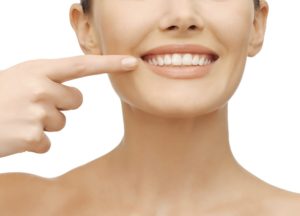
Do you have soft teeth? Read on to find out what that means.
If you believe you have soft teeth, you may be spending more time at your dentist than others. This is because you’re more likely to experience tooth sensitivity, toothaches, cavities, and other dental issues even if you’re taking the right steps to take care of your oral health. Sometimes people feel this happens after they age or if they have children. In truth, “soft teeth” aren’t really a thing—though some people do have teeth that are less likely to stand up to regular wear and tear.
Potential Causes
Anything that weakens enamel can make you feel like you have soft teeth. That includes a poor diet, bacteria, dental decay, and more. The perception that you have soft teeth doesn’t mean you aren’t taking care of your teeth though. Something we often see is teeth impacted by heartburn or acid reflux. Stomach acid can make its way to the mouth and this causes erosion of your enamel, which is actually worse damage than sugars or sodas cause.
Do You Have Soft Teeth?
It’s unlikely that you actually have what some people call soft teeth. Here’s why: for a tooth to be weaker than normal, it needs to have undergone damages while it was still growing. Considering the development of teeth ends around age 14, it’s unlikely that your teeth are any weaker than the others unless you experienced excessive bacteria or infections.
That said, teeth can become weaker over time due to sugar exposure, acid reflux, or poor dental care. Soft teeth that are the result of damages during the development stage will likely look different from other teeth and will have brown spots or other visible damage.
Common Misconceptions
We hear from people that a certain event may have made their teeth softer such as pregnancies, breast feeding, diabetes, allergies, and other conditions. Developing soft teeth as a result of these events isn’t likely. If you’re developing cavities, it’s likely due to poor hygiene or a poor diet.
Preventative Measures
At the end of the day, we recommend developing a good set of oral hygiene habits. Knowing how to brush your teeth and doing so twice daily is key. Understanding proper flossing and doing so daily is also important. Pay attention to your diet and try to limit your intake of sugary foods.
KEEP YOUR MOUTH HAPPY WITH ANNAPOLIS DENTAL CARE!
Whether it’s a regular check-up you need or a tooth extracted, your dentist in Annapolis is here to serve! Annapolis Dental Care has the expertise and compassion to work with you on improving your oral health. Your comfort and health are our top priorities, and so we go above and beyond to make our patients happy and give them the highest quality care. To set up an appointment today, please give us a call at 410-571-5014 or visit us online. For more oral health tips for you and your family, follow us on Facebook, Twitter, and YouTube! We are always looking for new patients, so if you live in Arnold, Annapolis, Anne Arundel County, MD, come on down!
